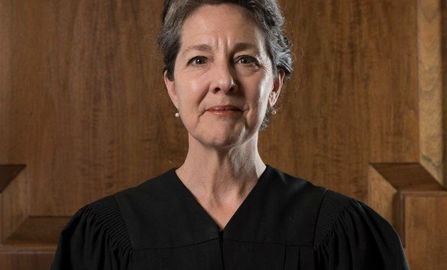When plaintiffs nonsuit (meaning voluntarily dismiss) their own claims, defendants are “prevailing parties” under statutory and contractual fee-shifting provisions, the Tennessee Supreme Court has held.[1] The decision will affect thousands of cases in Tennessee each year in which defendants have statutory or contractual claims to attorney’s fees when they “prevail” in litigation. And despite a concurring opinion urging that the majority’s reasoning “should be cabined” to the family law context or the particular marital dissolution agreement involved,[2] the majority’s reasoning applies broadly.
The case involved post-judgment litigation between divorced spouses. The Parties were previously divorced by judicial decree. The terms of their divorce were governed by a marital dissolution agreement that required John Colley to pay alimony to his ex-wife, Ms. Vanessa Turner. The Parties’ marital dissolution agreement also provided that: “In the event it becomes reasonably necessary for either party to institute or defend legal proceedings related to the enforcement of any provision of this Agreement, the prevailing party shall also be entitled to a judgment for reasonable expenses, including attorney’s fees, incurred in connection with such proceedings.”
Mr. Colley later filed post-judgment litigation seeking to terminate his alimony obligation to Ms. Turner prematurely. On the eve of trial, though, Mr. Colley filed a notice of nonsuit and voluntarily dismissed his claim. The dismissal prompted further litigation over whether Ms. Turner could recover the attorney’s fees that she incurred in defending against Mr. Colley’s post-judgment claims under either the fee-shifting provision of the Parties’ marital dissolution agreement or under Tennessee Code Annotated section 36-5-103(c).[3]
All five members of the Tennessee Supreme Court agreed that the answer was yes, albeit based on different reasoning. According to the three-Justice majority opinion (authored by Chief Justice Holly Kirby), Mrs. Turner “sought to preserve the status quo, and whether she wins on the merits or by voluntary dismissal, both are wins for the status quo.”[4] Central to this reasoning was the majority’s “agree[ment]” that, when a lawsuit “ends with a judgment that dismisses a plaintiff’s claims and affords him no relief, it makes little sense to conclude that the defendant did not ‘prevail[.]’”[5]
Justices Sarah Campbell and Jeffrey Bivins concurred in the judgment. “I disagree . . . with the majority’s view that Ms. Turner became a prevailing party merely by obtaining a voluntary dismissal without prejudice[,]” Justice Campbell’s concurring opinion explains.[6] “Ms. Turner’s status as a prevailing party here necessarily depends on the earlier judicial alteration of the parties’ legal relationship. Although she succeeded in this post-judgment litigation when Mr. Colley voluntarily dismissed his petition, she is a ‘prevailing party’ within the meaning of the agreement and the statute only because her success here was necessary to keep intact the earlier court-sanctioned relief.”[7] Justice Campbell’s concurring opinion concludes by stating: “Because the majority opinion stresses that it is interpreting ‘prevailing party’ only for purposes of the marital dissolution agreement and 36-5-103(c), its reasoning should be cabined accordingly.”[8]
The majority’s reasoning is not so cabined. Its position is clear: “We reject the federal precedent cited by the State as amicus.”[9] Instead, the majority relied on altogether different reasoning that many state jurisdictions have employed: “‘Common experience teaches that the challenger who forfeits, loses, and his opponent wins.’”[10] Thus, the majority expressly rejected the federal standard on which Justice Campbell’s concurrence was premised.[11]
This decision will have significant consequences on litigation behavior across Tennessee, all of them good. It will make bogus litigation less likely under circumstances when a defendant may obtain attorney’s fees for prevailing. It will enable those who are victimized by bogus litigation to be made whole. It will enable contingency representations in meritorious cases that otherwise would not have been possible. It also will incentivize defendants to behave when confronted with valid claims, because the consequence of employing a Stalingrad Defense in response to a plaintiff’s valid claims is to ensure a larger and preventable fee award at the end of litigation. And when plaintiffs realize, through discovery or otherwise, that their claims lack merit, they now have a strong financial to dismiss them immediately rather than prolong them.
Ms. Turner was successfully represented by Horwitz Law, PLLC attorneys Daniel A. Horwitz, Lindsay Smith, and Melissa Dix. Mr. Colley was represented by attorney P. Marlene Boshears.
Read the Tennessee Supreme Court’s majority opinion in Colley v. Colley here: https://www.tncourts.gov/sites/default/files/OpinionsPDFVersion/Majority%20Opinion%20-%20M2021-00731-SC-R11-CV.pdf
Justice Campbell’s concurring opinion is available here: https://www.tncourts.gov/sites/default/files/OpinionsPDFVersion/Separate%20Opinion%20-%20M2021-00731-SC-R11-CV.pdf
Briefing from the case is linked below:
– Appellant’s Rule 11 Application
– Principal Brief of Appellant Vanessa Turner
– Reply Brief of Appellant Vanessa Turner
– Brief of the State of Tennessee
– Appellant’s Response to Brief of the State of Tennessee
###
Questions about this article? Contact the author at daniel [at] horwitz.law.
Like ScotBlog? Join our email list or contact us here, or follow along on facebook at https://www.facebook.com/scotblog.org. You can also subscribe to the author’s weekly newsletter on the Tennessee Court of Appeals—Intermediate Scrutiny—here: https://horwitz.law/intermediate-scrutiny-blog-signup-form/
[1] Colley v. Colley, No. M2021-00731-SC-R11-CV, 2025 WL 1232008, at *1 (Tenn. Apr. 29, 2025).
[2] Id. at *22 (Campbell, J., concurring).
[3] The statute provides: “A prevailing party may recover reasonable attorney’s fees, which may be fixed and allowed in the court’s discretion, from the nonprevailing party in any criminal or civil contempt action or other proceeding to enforce, alter, change, or modify any decree of alimony, child support, or provision of a permanent parenting plan order, or in any suit or action concerning the adjudication of the custody or change of custody of any children, both upon the original divorce hearing and at any subsequent hearing.” See Tenn. Code Ann. § 36-5-103(c).
[4] Colley, 2025 WL 1232008 at *16.
[5] Id. at *8.
[6] Id. at *22 (Campbell, J., concurring).
[7] Id.
[8] Id.
[9] Id. at *16.
[10] Id. (quoting Epps v. Fowler, 351 S.W.3d 862, 873 (Tex. 2011) (Hecht, J. dissenting)).
[11] Although that standard is unsettled, as Justice Campbell observed, many federal courts “have held that the voluntary dismissal of a claim without prejudice ordinarily does not make the defendant a prevailing party.” Colley, 2025 WL 1232008 at *20 (Campbell, J., concurring).




